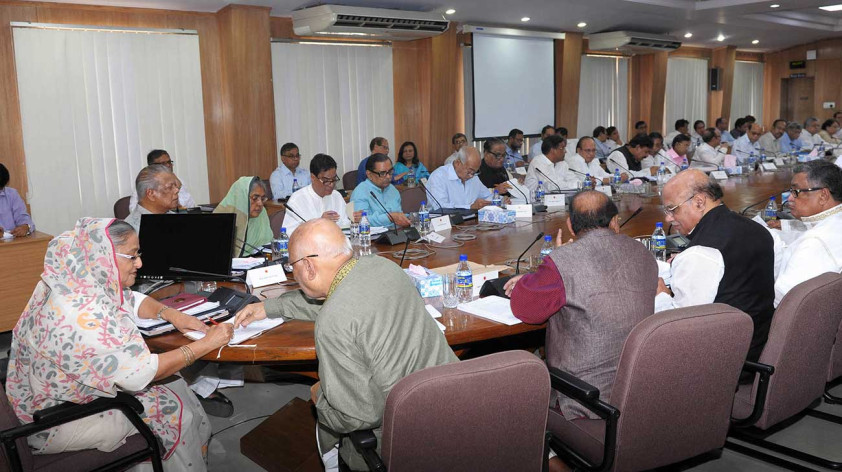Different stakeholders have hailed a government policy to protect the rights of domestic workers, but working parents fear it may create a shortage of domestic helps causing a crisis for them.
Members of National Domestic Women Workers Union believe that the policy, if implemented, will go a long way to stop violence and torture on domestic helps. They also think it will increase safety and security for both the employers and the helps.
The policy, approved by the cabinet yesterday, has fixed the minimum age for domestic helps at 14. It also focuses on fair wage, decent working conditions, fixed working hours, identity cards, contract of employment, maternity leave and legal actions against physical or verbal abuse and sexual harassment.
“I thank the prime minister for enacting the policy for domestic workers for which we have been waging a movement since long. People’s awareness will increase. As a result, torture on domestic workers will lessen too,” said Murshida Akter, general secretary of NDWWU.
Now domestic helps who had no legal coverage against torture earlier will enjoy some kind of legal protection, she told The Daily Star.
Shahinur Begum and Mamotaz Begum, two domestic workers, said they were happy to hear about the policy as it would bring them under legal protection against repression.
“I think repression on domestic helps will decrease significantly. We will be evaluated by the employers from now on and will be paid fairly,” Shahinur, who works for a family in the city’s Konapara area, told The Daily Star over the phone.
Employers, however, fear that a crisis will be created if the minimum age is set at 14. They think their employment will be affected if they are to give more time to their families and children in case of a domestic help shortage.
“I think it will hugely affect working mothers. There will be a shortage of already decreasing number of domestic helps. Thus we will have to give more time to the family. So it will hamper our job,” said Shahnaz Akhtar, a working mother who works at a private organisation in the capital.
“I won’t be able to continue my job if I don’t have a domestic help in my house,” said another working mother.
Their views were echoed by some other working women too.
Poor parents who find it too difficult to bring up their children send them to work as helps thinking their children will be well-fed and have a good life, they say.
Poor parents will be saddled with financial burden and a lot of children below the age of 14 will be deprived of proper nutrition and healthcare if they could not work as helps, they opine.
According to NDWWU, there are around 20 lakh domestic workers in Bangladesh, employed mostly in households in Dhaka city.
THE POLICY
The Domestic Workers Protection and Welfare Policy 2015 “is aimed at ensuring the workers’ overall welfare and recognising their work as labour”, Cabinet Secretary Mohammad Shafiul Alam told reporters after the cabinet meeting at Bangladesh Secretariat yesterday.
The cabinet secretary said Bangladesh was adopting this policy as the country “is a signatory to the 189 section of the Geneva Convention.”
He said the policy “has been framed in the light of the Labour Law.”
According to the policy prepared in consultation with relevant stakeholders between 2010 and 2015, helps aged between 14 and 18 will do only light work while domestic workers aged above 18 will be eligible for both light and heavy works.
He said salaries of domestic workers would be fixed upon mutual agreement between employers and helps so that the latter could not be subjected to any kind of oppression, indecent behaviour and physical and mental torture.
In case of physical and mental torture, he said, the provisions of punishment under the existing laws, including the Penal Code, and the Women and Children Repression Prevention Act, will be applicable.
He said the Workers Welfare Foundation under the labour ministry would oversee ensuring all the facilities for domestic helps and the government would introduce a “helpline” for them while an awareness campaign would also be in place.
PM FOR SELF-WORK
At the meeting, Prime Minister Sheikh Hasina encouraged her cabinet ministers to do their household works on their own instead of depending on domestic helps.
“In the Western countries, people do their household work by themselves. We can start the practice too,” she told the ministers.

